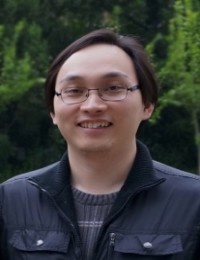YU Gan

YU Gan
Researcher
Email: ganyu@shsci.org
Tel:64437110
Research field:Systemic regulation of cancer
Biography
Dr. Yu Gan received his Ph.D. in Cancer Immunology from the Fudan University in 2007 and completed post-doctorate training in Neurology at University of Pittsburgh in the USA in the following years. In 2011, he moved back to China and joined the State Key Laboratory of Oncogenes and Related Genes (SKLORG) at the Shanghai Cancer Institute and Renji Hospital of Shanghai Jiao Tong University School of Medicine, where he serves as a Research Professor and a Ph.D. supervisor now. Dr. Gan has been awarded grants from the National Natural Science Foundation of China (NSFC) and the Ministry of Education of China. He also undertook research projects supported by the National Key Projects Specialized in Infectious Diseases and the National Key Research Projects for Precision Medicine. In addition, Dr. Gan has published more than 60 peer-reviewed papers in high-ranking journals (such as Cancer Research, Brain Behavior and Immunity, and Annals of Neurology) and participated in writing and editing 3 academic books.
Currently, Dr. Gan’s scientific research focuses on the macro-environment and systemic regulation of cancer. His research goal is to explain the complex role of the interaction between individuals and environment in cancer initiation and progression. He uses different animal models to elucidate the influence of psychological stress, emotional status, and personality on cancers, as well as the underlying mechanisms.
Publications
Liang Y, Li H, Gan Y*, Tu H*. Shedding Light on the Role of Neurotransmitters in the Microenvironment of Pancreatic Cancer. Front Cell Dev Biol. 2021 9:688953.
Li J, Zhang W, Gao J, Du M, Li H, Li M, Cong H, Fang Y, Liang Y, Zhao D, Xiang G, Ma X, Yao M, Tu H*, Gan Y*. E3 Ubiquitin Ligase UBR5 Promotes the Metastasis of Pancreatic Cancer via Destabilizing F-Actin Capping Protein CAPZA1. Front Oncol. 2021 11:634167.
Yang C, Yuan H, Gu J, Xu D, Wang M, Qiao J, Yang X, Zhang J, Yao M, Gu J, Tu H*, Gan Y*. ABCA8-mediated efflux of taurocholic acid contributes to gemcitabine insensitivity in human pancreatic cancer via the S1PR2-ERK pathway. Cell Death Discov. 2021 7(1):6.
Xu D, Yuan H, Meng Z, Yang C, Li Z, Li M, Zhang Z, Gan Y*, Tu H*. Cadherin 13 Inhibits Pancreatic Cancer Progression and Epithelial-mesenchymal Transition by Wnt/β-Catenin Signaling. J Cancer. 2020 11(8):2101-2112.
Meng Z, Liu T, Song Y, Wang Q, Xu D, Jiang J, Li M, Qiao J, Luo X, Gu J, Tu H*, Gan Y*. Exposure to an enriched environment promotes the terminal maturation and proliferation of



